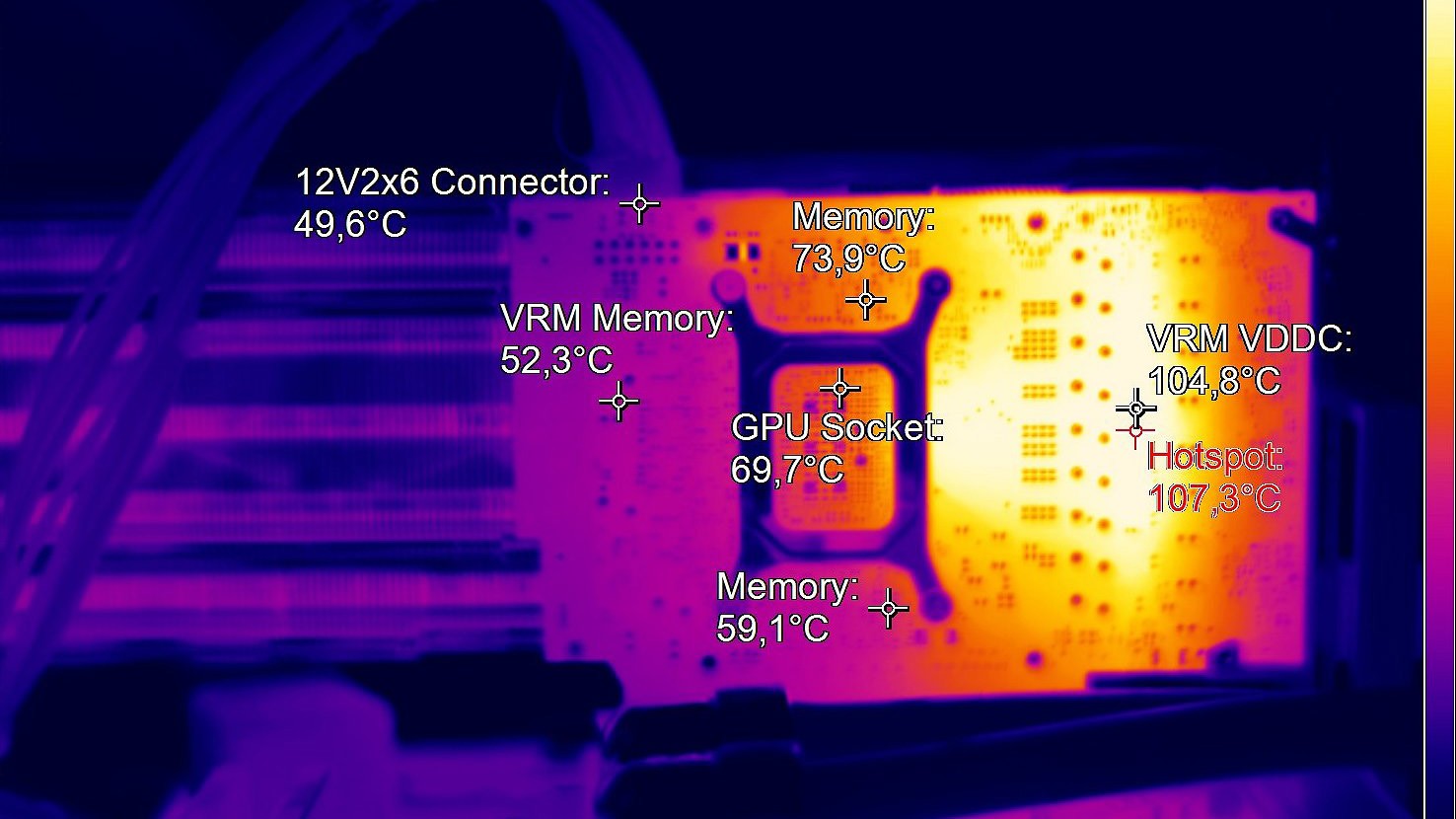
A recent investigation by renowned tech analyst Igor Wallossek has uncovered potentially serious thermal issues affecting Nvidia's RTX 5000 series graphics cards. The problems center around dangerous temperature hotspots on the cards' printed circuit boards (PCBs), which could impact their lifespan.
Testing conducted at Igor's Lab revealed alarming temperature spikes in the power delivery sections of multiple RTX 5000 cards. During stress testing, a PNY RTX 5070 OC reached concerning temperatures of 107°C in these areas, while its GPU core remained at a relatively cool 70°C. A Palit RTX 5080 Gaming Pro OC showed similar issues, hitting 80.5°C in affected zones.
The root cause appears to be the extremely compact design of power delivery components. Power-handling elements like FETs, chokes, and drivers are tightly clustered in a small area, forcing hundreds of amperes through minimal copper layers just 35-70 micrometers thick. This dense arrangement, while allowing for smaller card designs, creates concentrated heat zones that struggle to dissipate properly.
These temperature levels approach or exceed critical thresholds. At around 80°C, electromigration can begin to occur, while standard PCB resin starts breaking down near 105°C. Under heavy gaming loads, cards regularly push these limits.
A temporary solution proposed by Wallossek involves adding thermal putty and thicker thermal pads to connect hotspots to the backplate. This modification dropped temperatures notably - the RTX 5080's hotspot fell to 70.3°C, while the RTX 5070's decreased to under 95°C.
The investigation also highlighted potential gaps in Nvidia's thermal design guidelines. These specifications, provided to manufacturers, appear to be validated under ideal laboratory conditions rather than real-world gaming environments with poor ventilation and high humidity.
As of publication, Nvidia has not addressed these findings. Industry engineers note that the company's Green Light certification program, required for all graphics card partners, primarily focuses on GPU and memory sensors while potentially overlooking other thermal considerations.
The findings raise questions about the long-term reliability of RTX 5000 series cards, particularly for users who subject their hardware to intensive gaming sessions.